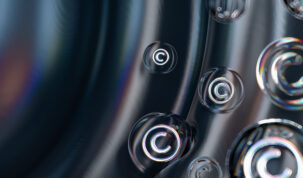survey released by the State IP Office reveals that the percentage of pirated software installed on Chinese computers decreases for the fifth year in succession:
- 2005: 66 %
- 2006: 63 %
- 2007: 56 %
- 2008: 47 %
- 2009: 45 %
The survey was based on 4,700 telephone interviews with consumers and business users carried out by Chinalabs.com. They estimate the 2009 value of the copied software to be 130 billion yuan.
A decline in copying is noted by the Business Software Alliance (BSA) too, although they arrive at the figure 80 %, down from 82 % last year and 86 % in 2005. BSA’s method is to predict the cost for supplying a country with legal software (yes, the model for this is very complex) and compare it with the value of the actual, paid-for software market. Measured on this scale, copied software installed in Denmark and Sweden amounts to 25 %. The USA is top of BSA’s list, at a mere 20 %.
Experts explain the decrease by a combination of the following:
- Commercial suppliers, including Microsoft Corp., have lowered their prices in China specifically.
- Legitimate free office programs and operating systems are improving and spreading.
- By law, manufacturers may only install genuine operating systems in made-in-China computers. This entered into force in 2006.
- The Chinese authorities are getting better at enforcing IP.
Other plausible factors are the emergence of domestic software suppliers and the rising IP awareness in China noted by many observers.
What is BSA anyway? It’s a non-profit trade organisation having as its mission to promote a safe and legal digital world. BSA was behind the 2008 lawsuit that put an end to the infamous Tomato Garden website. People downloaded not only unlicensed copies of commercial products, but also “improved” versions of MS Windows and others. Both are illegal under the copyright laws of China and virtually any country in the world, and both could be stopped.
Surely, you know that your software enjoys copyright protection from the moment you write it. But don’t forget – the successful action against the Tomato Garden was meticulously prepared as far as preservation of evidence was concerned. In order for your company to be ready to fight piracy the day it happens, there are a few measures to take. My colleagues and I will be glad to assist you.
Anders Hansson, Patent Attorney



